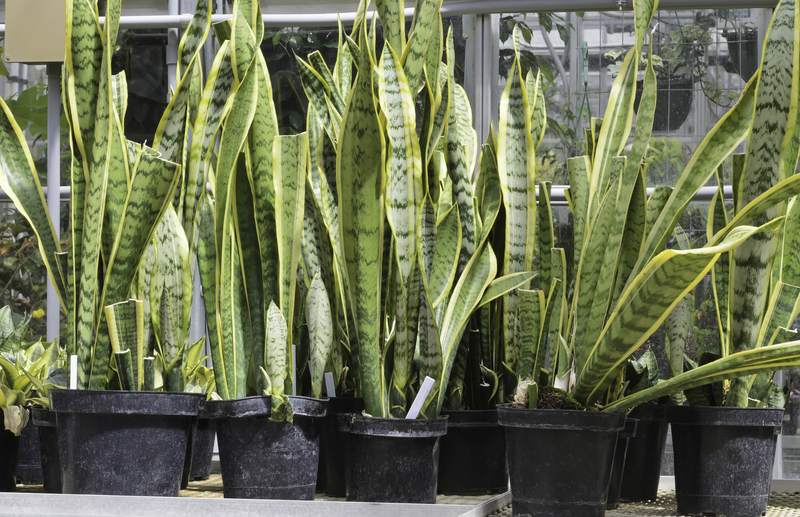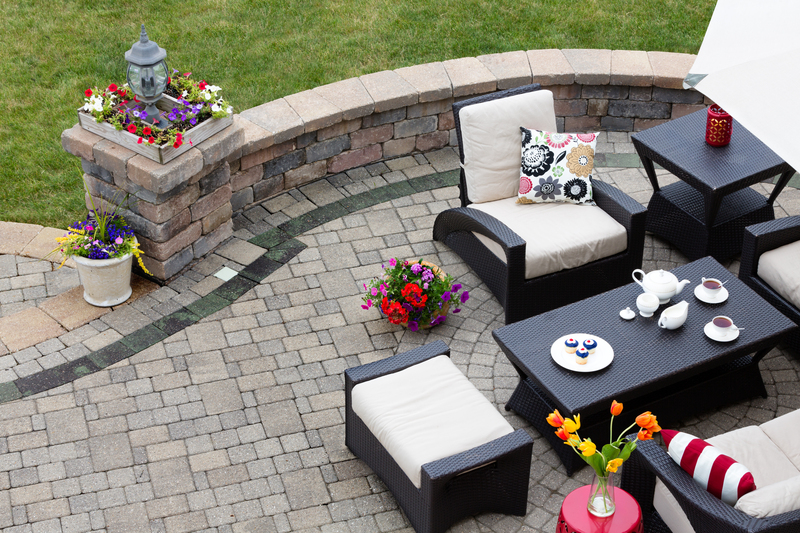Creating a Habitat for Beneficial Insects
Posted on 11/05/2024
The Key to Organic Pest Control
Organic gardening has become increasingly popular over the years, and for good reason. It is a sustainable and eco-friendly way of growing plants without the use of harmful chemicals. One important aspect of organic gardening is pest control. While pests can wreak havoc on your garden, there are natural ways to keep them at bay. Creating a habitat for beneficial insects is one such method that can not only help control pests, but also promote a healthy and diverse ecosystem in your garden. In this article, we will explore the benefits, tips, and takeaways of creating a habitat for beneficial insects.

What Are Beneficial Insects?
Beneficial insects, also known as natural enemies or biological control agents, are types of insects that play a crucial role in controlling pest populations in an ecosystem. They do this by feeding on pests like aphids, mites, caterpillars, and other harmful insects. Some common beneficial insects include ladybugs, lacewings, praying mantises, and ground beetles.
The Importance of Creating a Habitat for Beneficial Insects
Insects are an integral part of any ecosystem and creating a habitat for beneficial insects can bring numerous benefits to your garden. Here are some of the reasons why you should consider incorporating beneficial insect habitats into your garden:
1. Natural Pest Control: As mentioned earlier, beneficial insects feed on harmful pests, making them an effective form of natural pest control. By increasing their presence in your garden, you can reduce or even eliminate the need for chemical pesticides.
2. Diverse Ecosystem: A healthy ecosystem consists of a variety of organisms working together to maintain balance. By attracting beneficial insects to your garden, you are promoting biodiversity and creating a self-sustaining ecosystem.
3. Cost-Effective: Incorporating beneficial insect habitats into your garden can save you money in the long run. Instead of purchasing expensive pesticides, let nature's pest controllers do the job for you.
4. Environmentally-Friendly: Chemical pesticides not only harm pests, but also beneficial insects and other organisms in the ecosystem. By using natural methods like attracting beneficial insects, you are contributing to a healthier environment.
Tips for Creating a Habitat for Beneficial Insects
Now that we have established the importance of beneficial insects in your garden, let's take a look at some tips for creating a habitat for them:
1. Plant Diversity: Different types of plants attract different types of beneficial insects. Therefore, it is important to have a diverse range of plants in your garden. Flowers like daisies, sunflowers, and marigolds are known to attract ladybugs and lacewings. Herbs like cilantro, dill, and fennel attract parasitic wasps that prey on caterpillars.
2. Provide Shelter: Beneficial insects need shelter to survive harsh environmental conditions. Plants like shrubs, grasses, and trees provide shelter and also act as windbreaks for smaller insects.
3. Water Source: Like all living creatures, beneficial insects need water to survive. Providing a source of water such as a bird bath or small pond can attract dragonflies, which feed on mosquitoes.
4. Avoid Pesticides: Chemical pesticides not only harm pests but also beneficial insects. It is essential to avoid using them in your garden if you want to attract and maintain populations of helpful bugs.

The Pros and Cons of Creating a Habitat for Beneficial Insects
Pros:
1. Natural pest control
2. Promotes biodiversity
3. Cost-effective
4. Environmentally-friendly
Cons:
1. Requires careful planning and maintenance
2. May attract nuisance pests along with beneficial ones
3. Takes time to see results
Takeaways
Creating a habitat for beneficial insects is an effective way to control pests in your garden while promoting a healthy and diverse ecosystem. Remember the following takeaways when incorporating this method into your gardening routine:
1. Plant diversity is key to attracting a variety of beneficial insects.
2. Provide shelter and a water source for these insects.
3. Avoid using chemical pesticides.
4. Be patient, as it may take some time to see results.
Conclusion
In conclusion, creating a habitat for beneficial insects is a natural and sustainable way to control pests in your garden. By attracting these helpful bugs, you are promoting biodiversity and contributing to a healthier environment. With careful planning and maintenance, you can create a thriving ecosystem that benefits both your garden and the planet. So why not give it a try and see the positive impact it has on your organic gardening journey?
Latest Posts
Must-Try Planting Concepts for a Beautiful Autumn Garden
DIY Guide to Perfectly Sharpening Garden Shears at Home
Essential Techniques for Maintaining Clean and Lush Artificial Grass
Transform Your Space With Meaningful Zen Garden Plant Choices




